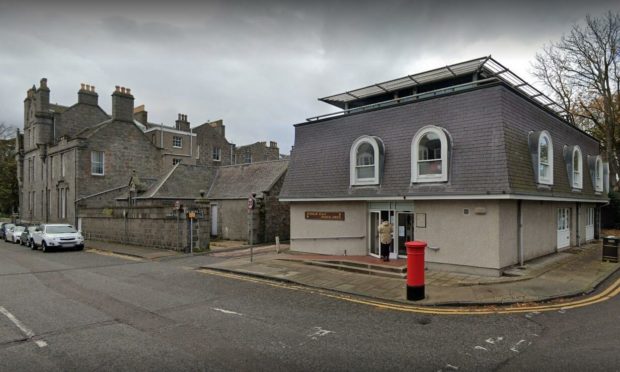A doctor from Aberdeen has been suspended for three months after being caught prescribing medicine to herself using her married name.
Ainslie Patterson was caught by a health watchdog when the prescriptions were flagged as “unusual”.
She had believed that it was acceptable to self-prescribe medication even though clear guidelines state it is against best practice for medical professionals.
During a routine audit in February 2019, a pharmacist flagged the prescriptions as “unusual”.
The findings then prompted an investigation which found she had filled out prescriptions for three patients between January and October 2018, all of whom she maintained a close relationship.
Brought before the Medical Practitioners Tribunal Service (MPTS), Patterson said: “In a panic, I wrote three prescriptions for the drugs and delivered them to three different pharmacies, hoping that one of them would be able to provide the drugs within the necessary timeframe.
“Two of the prescriptions were private prescriptions, and the third was an NHS prescription for the medication.”
Having graduated from Aberdeen University in 1997, she had been in the midst of training to become a GP after a career break in 2015.
While on placement at the Rubislaw Practice in Aberdeen, she undertook the final stages of her GP training.
Following evidence given by Patterson, a panel decided not to strike her off but instead land her with a suspension.
‘The partners told me they thought it would be confusing to have two Dr Pattersons’
During the proceedings, Patterson claimed to have never used her married name in her professional life.
She added: “Samuel is my married name. I do not usually use that name in my professional life. I have always continued to use my maiden name Dr Patterson, and that is the name under which I have always been registered with the GMC.
“When I joined the Rubislaw Practice as a trainee, there was already another Dr Patterson working in the practice.
“The partners told me that they thought it would be confusing to have two Dr
Pattersons working in the practice, and they asked me to use my married name Samuel
instead. I agreed to do so.
“I was therefore always known as Dr Samuel within the practice, with both staff and patients. I used the name Dr Samuel in my written correspondence, including, for example hospital referrals, and signed my name as Dr Samuel on all prescriptions.”
‘Understanding was incorrect’
Patterson had made a failed bid during her disciplinary hearing to keep its proceedings private.
She added: “At the time of writing these prescriptions, it was my understanding that there was absolutely no difficulty with self-prescribing on a private basis, particularly in these circumstances.
“Once again, I now recognise that my understanding was incorrect and that good medical practice does not countenance this.
“I admit that I was aware at the time that it was not appropriate to self-prescribe on the NHS. I do not wish to make excuses for my actions.”
‘Unlikely to repeat her misconduct’
It was stated that the most serious aspects of Patterson’s conduct underlying the allegations made against her was the concealing of information from, and the deception of, the pharmacist, and obtaining a prescription to which she was not entitled.
David Mclean, MPTS panel chairman said: “The Tribunal accepted that the personal circumstances that contributed to Dr Patterson’s dishonest conduct were unusual, and individual to her.
“Further, it was satisfied that Dr Patterson is safe to practise, poses no risk to patients, has remediated all of her failings, and is highly unlikely to repeat her misconduct.
“Taking all of the evidence, submissions and its own deliberations into account, the tribunal was satisfied that a period of suspension would mark the seriousness of Dr Patterson’s misconduct by preventing her from practising for a period whilst upholding the overarching objective.”
